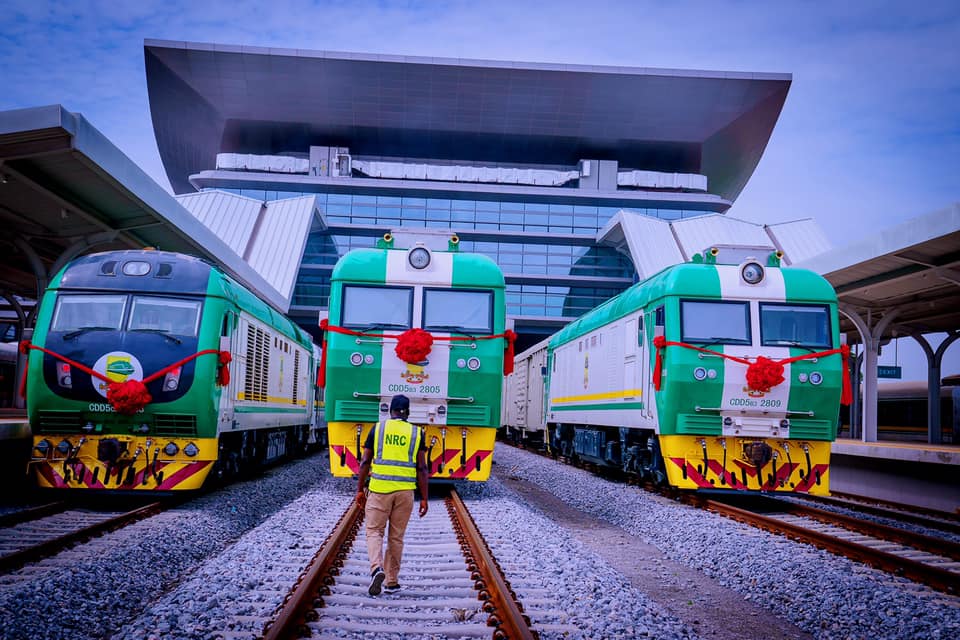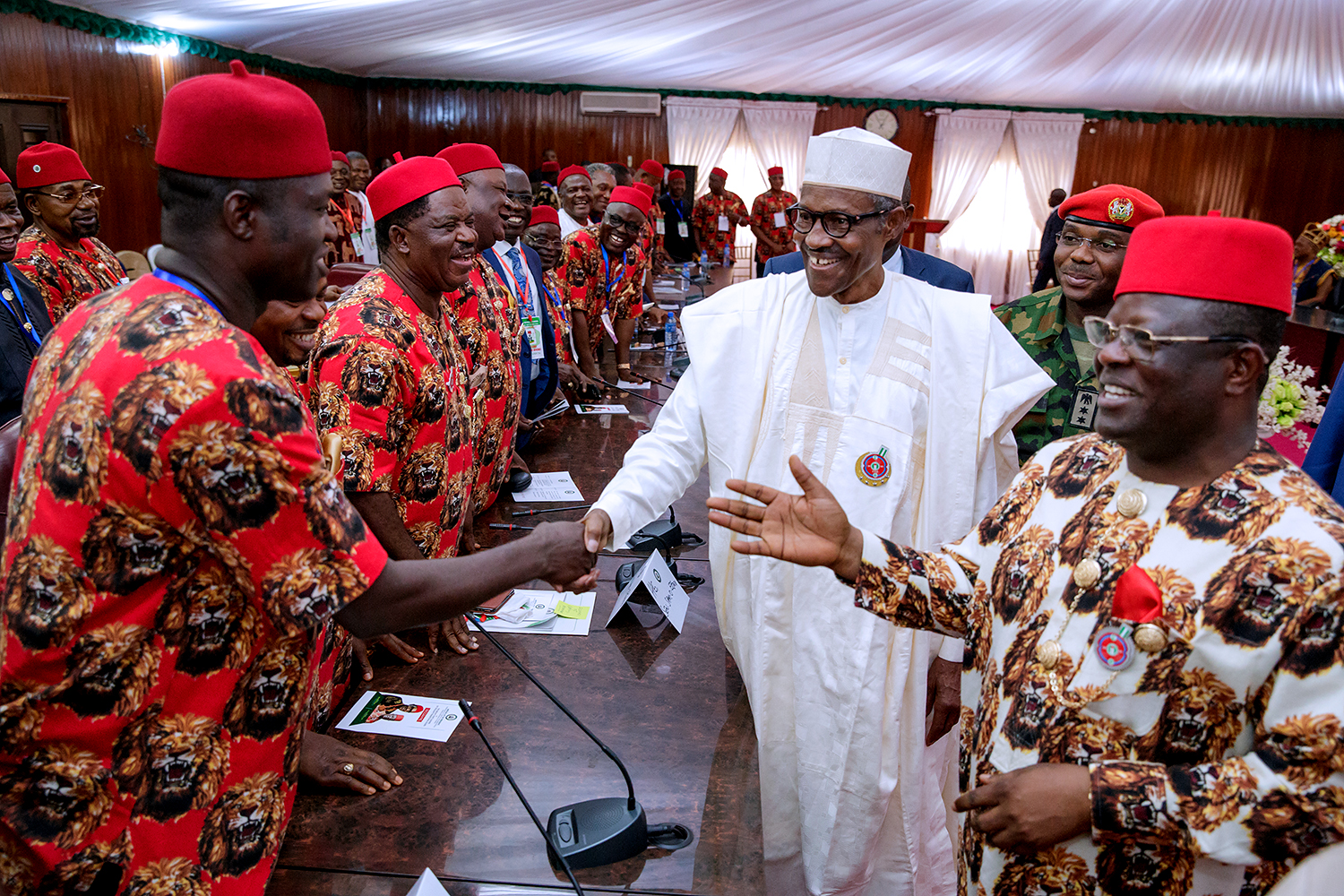BY IBRAHIM HASSAN
Ever since its invention and commencement as a means of transportation at the close of the 19th century in Britain, the railway transportation mode has surpassed all the other means of transportation in the crystallisation of civilisation or, the advancement of mankind. While for instance, the seagoing vessels have it when it comes to bulk haulage across the continents, the rail has incomparable advantages over the other modes in the movement of people and goods on land.
The advantages of rail transportation include flexibility in its routings, relative capacity for bulk haulage, and lower costs to its users.
As a result of the huge number of people and products conveyed by railway, it has engendered the opening up and creation of new markets and heavy industries as well as, the change of hitherto remote and far-flung lands into bubbling urban centres. York in Britain, Minna, Kafanchan, and Gusau in Nigeria are illustrations of the transformative impact on cities and commercial centres.
Advertisement
Many modern cities in Britain, other countries in Europe, the USA, and China owe their transformation largely to the impact of the railway. The revolution experienced in railway transportation mode did not, as such, trigger the industrial revolutions in Britain and the rest of Europe in the 18th and 19th centuries, the emergence of rail transportation was, however, a great impetus to the rapid expansion of industries, the centralisation, and integration of people and economies resulting in today’s outstanding global beacons of modern societies.
To increase the harvest of its multiple benefits, most industrialised countries of the world have continued to commit huge portions of their revenues into the expansion and modernisation of their railway systems. For example, in spite of the fact that it is one of the leading countries in the use of railways as a means of transportation, Britain recently announced the allocation of a whopping £50 billion for research and expansion of its rail system.
The Nigerian rail system was initiated by the British colonial government essentially and solely for the purpose of evacuating agricultural produce and other raw materials from the hinterland to the seaports for onward shipment to the metropolis. Unfortunately, successive post-colonial administrations in the country amazingly failed to reinvent the nation’s railway by expanding and reshaping the infrastructure to enhance economic development and social integration. Most of the initiatives and actions taken were haphazardly conceived, ill-designed, and poorly executed, inevitably leading to the moribund state of the rail transportation mode through the years.
Advertisement
Happily, the narrative has since begun to positively change with the advent of President Muhammadu Buhari.
In line with his All Progressives Congress (APC) manifesto, Buhari has vicariously pursued the agenda to holistically transform the country’s transportation infrastructure. To drive home the vision into actuality, the president went for one of the nation’s most tested, experienced, and successful political actors in the person of Rotimi Amaechi. The erstwhile two-term speaker and two-term governor of Rivers state, has hugely and spectacularly delivered on the assignment.
Within a spate of six years, remarkable and unprecedented milestones have been recorded in the nation’s rail transportation system, so much more than all the feats performed by past administrations in the preceding five decades.
On assumption of office as minister of transportation, Amaechi went to work by first identifying rail transportation infrastructure as deserving priority attention among other sectors under the ministry and accordingly, focused his attention and energy in that direction. After appraising the state of the sector, he went on to draw up a blueprint and an action plan aimed at its revival which includes the completion of ongoing and abandoned projects.
Advertisement
In that regard, the 168-kilometre Abuja-Kaduna rail track was completed and put to use just as the 157-kilometre Lagos-Ibadan stretch was started, completed in record time by the administration, and has already been put to use. Similarly, while the Warri–Ajaokuta rail line of 327 kilometres abandoned for more than three decades has been completed and put to use, the 44.7-kilometre Abuja metro line, initiated by the Jonathan government has since become a reality. The Itakpe-Baro-Abuja railway is very much on the way to joining the number of rail projects completed under the supervision of Rotimi Amaechi.
In the longer term, the Amaechi blueprint for the revolutionary transformation of the Nigerian Railway includes the East-West coastal rail line that will link Lagos to Calabar through Warri and another one from Lagos to the south-east commercial city of Onitsha. The contract for the Port Harcourt/ Maiduguri line has just been signed. There is also the Trans-African railway that connects the Lagos-Kano track through Katsina to Maradi, in Niger Republic with eventual plans to take it across the Sahara to seaports in the Mediterranean countries of North Africa.
Admittedly, a number of these projects will not be completed with Buhari in office as president and Amaechi as minister of transportation. However, with much that has been accomplished, in the preceding six years and in the remaining days of this administration, a bold and formidable foundation stone has been laid for the take-off of the Nigerian railway revolution.
No government that comes after this administration can neglect to build on the foundations laid by President Muhammadu Buhari through his arrowhead, Rotimi Amaechi, the ebullient, patriotic, and visionary Ikwere wonder kid from Rivers state.
Advertisement
Take it or leave it, our quest for industrial take-off, peace, and stability will continue to elude our country unless and until we experience a railway revolution now apparently, at the stage of incubation.
Hassan is a freelance writer based in Kaduna
Advertisement
Views expressed by contributors are strictly personal and not of TheCable.
Add a comment






